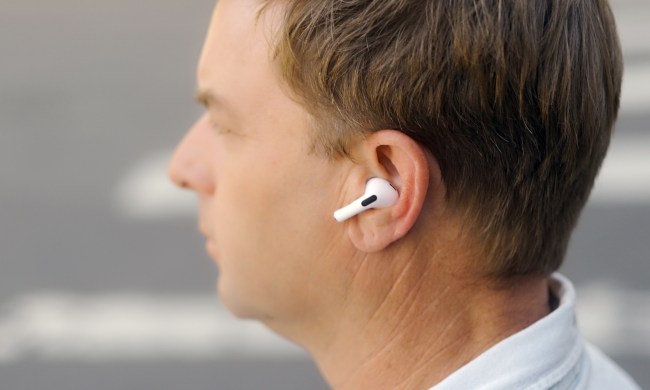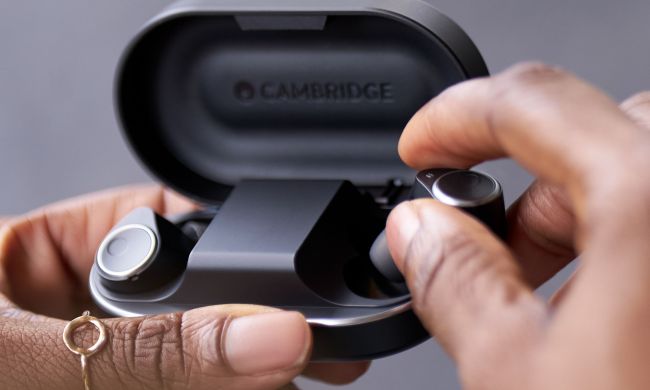 Simon Cohen / Digital Trends
Simon Cohen / Digital Trends
With the launch of iOS 18.1 imminent, Apple is about to officially recognize the AirPods Pro’s hearing protection capabilities. And all I can say is this: What took so long?
For seven years, I rode a Harley-Davidson touring bike with aftermarket pipes and a high-flow air intake — modifications that made it a lot louder than when it rolled off the assembly line. On most motorcycles it’s wind noise and not the sound of your bike that poses the greatest risk to your hearing. Not so with my Harley.
I never measured its level in decibels, but it was loud enough that on the days I didn’t use earplugs, I experienced some residual ringing after just 30 minutes of riding.
Then one day, I tried using my AirPods Pro instead of earplugs. I’d been wowed by their impressive active noise cancellation in other scenarios, so I figured why not?
In truth, I was motivated by the ability to listen to music while I rode. The bike had its own stereo system — but why add yet another layer of loud sound outside my helmet when I could get way better sound from inside?
I was absolutely stunned by how well the AirPods Pro tamed the Harley’s exhaust and engine sound. It’s not an exaggeration to say that it felt like it reduced the noise by half — maybe more. They offered a greater reduction of noise than any of the earplugs I had used until that point.
At the time I questioned if I was simply trading hearing damage I was aware of for damage that was being caused inaudibly. However, an audiologist I spoke to when I was researching noise-induced hearing loss (NIHL) reassured me that the physics of anti-noise (the act of canceling an incoming sound wave with one that is its total opposite) does indeed reduce the decibels our ears are exposed to.
Historically, Apple hasn’t published any stats to back up what my ears were telling me. It relies instead on generalized marketing language, e.g., AirPods Pro 2: “Up to 2x more Active Noise Cancellation compared with AirPods Pro (1st generation).”
However, when The Wirecutter put the AirPods Pro (and several leading hearing protection alternatives) to the test in 2023, they discovered that ANC mode on Apple’s buds can reduce 105dB sounds by 23dB. That’s enough to bring these otherwise dangerously high levels down to 82dB. To put that into perspective, it’s the difference between being able to safely listen for less than 5 minutes and being able to do so for up to 40 hours.
With iOS 18, Apple is now willing to publish some concrete numbers for the AirPods Pro 2’s ANC capabilities, and The Verge has a published a great preview of what to expect.
 Apple/The Verge
Apple/The VergeMy Harley is gone. I traded it in at the end of the 2024 season for a much quieter Honda. But I’ll continue using my AirPods Pro when I ride. Some things are worth keeping — like my hearing.

Simon Cohen is a contributing editor to Digital Trends' Audio/Video section, where he obsesses over the latest wireless…
Apple AirPods Pro will get head gestures and better calling with iOS 18

Along with a slew of new features for iOS 18, Apple's Worldwide Developer Conference keynote has given us a sneak peek at how the AirPods Pro will evolve come the fall.
One of the big changes is how you can respond to Siri's verbal options. For instance, when a call comes in and Siri asks if you'd like to accept, you can nod your head to do so or shake it to decline.
Read more
Are AirPods waterproof? Everything you need to know

If you've recently bought a pair of Apple AirPods or are considering it because all your searching has proven that they’re some top-notch earbuds, you might be curious if they're waterproof. The short answer is no, so it’s best to avoid using them in overly rainy conditions or around water. However, you’re in for some good news if you’re eyeing the third-gen AirPods or the first- and second-gen AirPods Pro. They are indeed water-resistant.
Let’s examine what this means and examine how each AirPod model handles water. We'll also discuss the levels of water resistance and what that means for your use. Let’s dive in!
Water resistant vs. waterproof
As we mentioned above, none of Apple's AirPods -- AirPods, AirPods Pro, or AirPod Max -- are waterproof. But what is "waterproof" anyway? From an electronic device standpoint, being waterproof means that the device is watertight and can be completely submerged in water. There's a common ratings system designed for electronics to measure this (as well as dust and dirt resistance) known as the IP (Ingress Protection) rating, which we cover in our post on the water-resistance rating system.
Read more
Cambridge Audio’s first AirPods Pro competitor has lossless audio, massive battery life

Cambridge Audio's new Melomania M100 wireless earbuds are the U.K. company's first model to offer active noise cancellation (ANC), a key feature of virtually every flagship model from competitors, including Apple's AirPods Pro. The Melomania M100 are priced at $219 and are available starting on March 27 at Amazon and other retailers.
While ANC is a big addition, Cambridge Audio appears to have caught up with the market in a number of other areas, too. The M100 has a case that supports wireless charging, and thanks to Qualcomm's Snapdragon Sound platform, the earbuds can receive lossless CD-quality audio from compatible smartphones, as well as lossy, hi-res audio at up to 24-bit/96kHz.
Read more




















 English (US) ·
English (US) ·